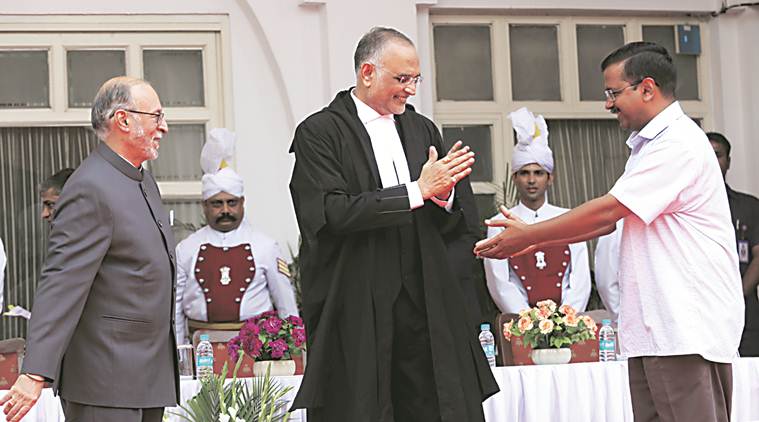
Delhi High Court Chief Justice Dhirubhai Naranbhai Patel has stressed the need for disposing pending cases as old as 25 years.
Speaking at the India International Centre, where a ceremony was held to felicitate him for taking over as the Chief Justice of the Delhi High Court, Justice Patel said: “We have decided to dispose 25-year-old cases with the help of the Bar Council members at the earliest.”
Justice Patel also launched the Bar Council of Delhi’s online payment facility at the event.
He said that meetings are being conducted with district judges regarding the pendency of old cases and emphasised that judges alone cannot dispose cases and the help of lawyers is needed for it.
Also present were Justices G S Sistani, Talwant Singh, Rajnish Bhatnagar, Asha Menon, and Brijesh Sethi.
Justice Patel spoke at length on the problems faced by junior advocates, including the low stipend they receive and expensive books they have to purchase. He appealed to the Bar Council of Delhi to help them with these problems. “In Jharkhand, they have already started these initiatives. If Jharkhand can help its advocates, Delhi too can,” Justice Patel said.
On the training of young lawyers, Justice Patel said that law colleges are up to mark, but stressed that young advocates must also know how a court functions. “You must know your judge before you know the law…,” he said.
He talked about the manners which must be observed inside a court room: “Junior advocates must vacate the chair for their seniors if there is no space. Nowadays, senior advocates stand and juniors can be found sitting,” Justice Patel said.
He said that juniors must achieve what their seniors could not. “Several seniors might have missed the bus, those things can always be achieved by their juniors,” he said.
He expressed happiness at being the Chief Justice of the Delhi High Court: “I heard a lot of about the paperless courts here. I am thankful to all the judges who taught me in the least possible time. Within 10-15 days, I am sure that other judges will start and have a taste of this paperless court. It is not that difficult, but not that easy either.”